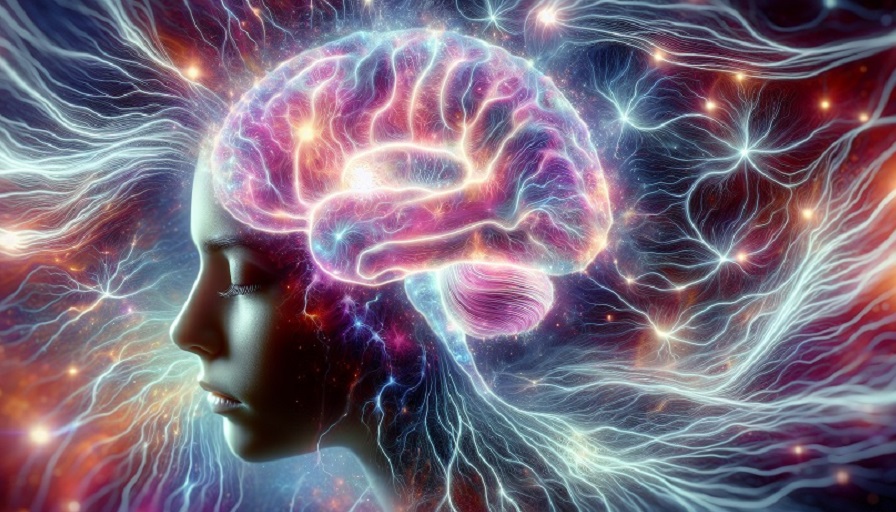
Turning 50 is a milestone that often prompts reflection on health and longevity. While much attention is given to heart health, joint strength, or maintaining physical energy, brain health deserves equal focus. The brain changes with age – processing speed slows, multitasking becomes harder, and memory lapses grow more common. Yet research shows that adopting certain habits can support cognitive vitality and reduce the risk of decline. With the right lifestyle choices, it’s possible to stay sharp, engaged, and mentally resilient well beyond midlife.
Contents
Understanding Brain Changes After 50
The brain is remarkably adaptable, but aging brings structural and functional changes. Neurons shrink slightly, connections between brain cells (synapses) weaken, and levels of neurotransmitters decline. These changes may lead to slower recall or learning. However, thanks to neuroplasticity – the brain’s ability to reorganize and form new connections – older adults can continue building mental strength. Habits that challenge, nourish, and protect the brain encourage neuroplasticity and cognitive resilience.
Habit 1: Prioritize Regular Exercise
Physical activity is one of the most powerful tools for brain health. Aerobic exercise increases blood flow to the brain and stimulates the release of growth factors that support new neurons. Studies link regular exercise to better memory, faster thinking, and a reduced risk of conditions like Alzheimer’s disease.
- Cardio: Walking, cycling, or swimming three to five times per week improves brain oxygenation.
- Strength training: Preserves muscle mass, which supports metabolism and brain function.
- Balance exercises: Activities like yoga or tai chi reduce fall risk and promote coordination.
The brain benefits from consistency. Even moderate activity, when practiced regularly, strengthens cognitive performance.
Habit 2: Nourish the Brain With a Healthy Diet
Nutrition fuels cognitive resilience. Diets rich in certain nutrients protect against inflammation and oxidative stress, two processes that accelerate aging in the brain. The Mediterranean and MIND diets are often recommended for their brain-protective benefits.
- Omega-3 fatty acids from fatty fish or flaxseed support cell membranes and communication between neurons.
- Leafy greens and berries provide antioxidants that reduce cellular damage.
- Whole grains maintain steady blood sugar, preventing energy crashes that impair focus.
- Nuts and seeds deliver vitamin E, which is linked to reduced cognitive decline.
By fueling the brain properly, individuals over 50 can maintain sharper focus and memory.
Habit 3: Protect Sleep Quality
Sleep becomes more fragmented with age, but it remains crucial for brain health. During deep sleep, the brain consolidates memories and clears waste products through the glymphatic system. Poor sleep is associated with increased risk of cognitive decline and mood disorders.
To support quality rest:
- Keep a consistent sleep schedule, even on weekends.
- Limit caffeine and heavy meals late in the day.
- Establish a relaxing bedtime routine with reading or light stretching.
- Keep the sleep environment cool, dark, and quiet.
Protecting sleep is one of the most effective ways to support mental clarity after 50.
Habit 4: Stay Mentally Active
The brain thrives on stimulation. Just like muscles weaken without exercise, neural pathways fade without use. Challenging the mind with new tasks strengthens cognitive reserves.
- Learn a new skill, such as painting, gardening, or playing an instrument.
- Practice memory games, puzzles, or logic challenges.
- Read widely and engage in discussions to stretch comprehension and perspective.
- Take courses or workshops to keep curiosity alive.
Learning at any age builds new neural connections and slows cognitive aging.
Habit 5: Maintain Social Engagement
Loneliness is a significant risk factor for cognitive decline. Social interaction stimulates the brain, reduces stress, and enhances emotional well-being. Adults over 50 benefit from maintaining strong personal connections.
- Stay in touch with friends and family through regular conversations.
- Join clubs, volunteer, or participate in community activities.
- Engage in group exercise or hobby classes for both stimulation and connection.
Meaningful relationships help buffer the brain against stress and memory loss.
Habit 6: Manage Stress Effectively
Chronic stress elevates cortisol, which damages the hippocampus (a brain region critical for memory). After 50, managing stress becomes even more important to preserve cognitive resilience.
- Practice mindfulness or meditation for a few minutes daily.
- Incorporate deep breathing exercises to reduce stress in the moment.
- Spend time in nature, which lowers stress hormone levels.
By keeping stress under control, the brain is better equipped to function under pressure.
Nootropics as Cognitive Support
Some individuals add nootropics, or brain supplements, to their toolkit for supporting cognition after 50. Natural compounds like ginkgo biloba have been studied for circulation support, while Bacopa monnieri is linked to memory benefits. L-theanine with caffeine promotes calm alertness, and omega-3 fatty acids strengthen brain structure over time. While no supplement replaces healthy habits, they may provide an additional layer of support for brain vitality.
After 50, maintaining brain health is not just about preventing decline – it’s about cultivating a lifestyle that keeps the mind sharp and engaged. Through exercise, nutrition, quality sleep, mental stimulation, social connection, stress management, and supportive tools like nootropics, it’s possible to strengthen cognitive resilience. These habits work together to ensure that the years after 50 are not just long, but vibrant, fulfilling, and mentally strong.

